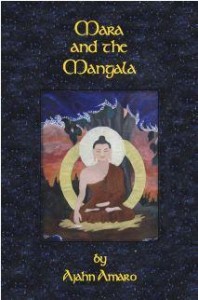
Mara and the Mangala by Ajahn Amaro is intended to be both a partner to the novel ‘The Pilgrim Kāmanīta,’ written by Karl Gjellerup in 1906, and a tale that stands on its own. This book was originally projected to be published entirely as a serial novel, appearing one chapter at a time on the first day of every month, over a couple of years. But for some reasons the author decided to publish the entire work online once and for all in 2010. This is the free, unabridged pdf version (403 pages). Download it here:
 Mara and the Mangala by Ajahn Amaro
Mara and the Mangala by Ajahn Amaro
Who was Karl Gjellerup?
Karl Gjellerup was a Danish poet and novelist who was co-recipient of the Nobel Prize in Literature in 1917, shared with his countryman Henrik Pontoppidan. Born on June 2, 1857, in Roholte, Denmark, Gjellerup was part of the Modern Break-Through movement in Scandinavian literature, which advocated for realism and naturalism, challenging the conservative values and literary styles of the time.
Gjellerup’s literary career is marked by a significant evolution in thought and style, influenced initially by German idealist philosophy. His early works reflect a romantic idealism, but as his career progressed, he became increasingly interested in Eastern philosophies and religions, particularly Buddhism. This interest is evident in some of his later works, which blend elements of Eastern thought with Western literary traditions.
Despite his Nobel Prize win, Gjellerup is not as widely recognized or remembered today as some of his contemporaries. His work, however, played a part in the broader cultural and literary movements of his time, bridging between the traditional and the modern and between Eastern and Western thought. Gjellerup passed away on October 13, 1919.

